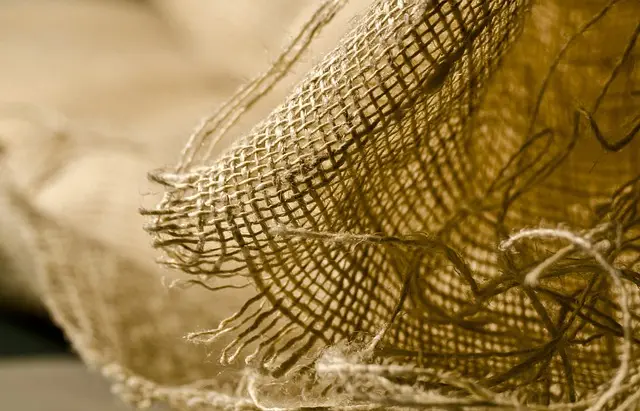Muscle soreness, commonly known as DOMS, is a frequent issue for those engaging in intense physical activities, particularly for fitness enthusiasts in Michigan where cold weather can exacerbate the condition. This soreness results from microtraumas within muscles and tissues leading to inflammation. Individuals are exploring natural remedies like kratom, a plant-based supplement with potential analgesic effects derived from Southeast Asia, as a way to alleviate muscle pain. While kratom is gaining popularity in Michigan for its reported benefits in post-exercise recovery, it's crucial to consult healthcare providers before using it, given its complex legal status and the need for safe dosing. The use of kratom should be approached with caution due to its influence on opioid receptors and the importance of understanding local laws, as regulations vary across the state. For those considering incorporating kratom into their fitness routine in Michigan, it's essential to do so under professional guidance, considering the individual's health status and the potential benefits and risks associated with the supplement. A balanced workout regimen that includes adequate rest and a well-informed approach to kratom use can help maintain a healthy exercise schedule and promote effective recovery.
Muscle soreness can be a persistent challenge for fitness enthusiasts, often disrupting workout routines and impeding progress. Understanding its origins and effects is key to maintaining an active lifestyle. This article delves into the role of kratom in Michigan as a natural remedy for muscle soreness, exploring its usage patterns and legal status within the state. We will then guide you through crafting tailored workout plans that incorporate kratom’s alleviating properties to minimize soreness and keep your fitness journey on track. Join us as we navigate the intersection of physical well-being and natural supplementation.
- Understanding Muscle Soreness and its Impact on Fitness Routines
- The Role of Kratom in Michigan for Muscle Soreness Relief: A Comprehensive Look at Its Usage and Legality
- Designing Customized Workout Plans to Alleviate Soreness with the Help of Kratom
Understanding Muscle Soreness and its Impact on Fitness Routines

Muscle soreness, commonly referred to as delayed-onset muscle soreness (DOMS), is a natural response to intense physical activity, particularly when introducing new exercises or after a period of inactivity. This phenomenon occurs due to microtraumas within the musculoskeletal system, which can lead to inflammation and pain. Understanding the mechanisms behind muscle soreness is crucial for fitness enthusiasts as it can significantly impact one’s ability to maintain a consistent workout routine. Engaging in physical activity when experiencing muscle soreness requires a delicate balance between rest and activity to prevent further injury while promoting recovery.
In Michigan, individuals seeking relief from muscle soreness have various options, with some turning to natural supplements like kratom. Kratom, derived from the leaves of Mitragyna speciosa, has been used traditionally in Southeast Asia for its potential pain-relieving and mood-enhancing effects. In Michigan, where fitness routines can be particularly grueling due to the state’s cold weather, kratom may offer a natural alternative to manage discomfort associated with muscle soreness. It’s important for those considering kratom to consult with healthcare professionals to ensure its safe and effective use as part of their recovery strategy, aligning with their overall fitness goals.
The Role of Kratom in Michigan for Muscle Soreness Relief: A Comprehensive Look at Its Usage and Legality

Kratom, a plant originating from Southeast Asia, has garnered attention in Michigan for its potential role in muscle soreness relief. The leaves of kratom contain compounds that can interact with the brain opioid receptors, providing pain-relieving effects. In Michigan, where physical activities and fitness routines are integral to many residents’ lifestyles, the use of kratom as a natural alternative to manage post-exercise soreness is gaining traction. Locals report that certain strains of kratom can alleviate muscle pain and enhance recovery between workouts, making it a popular choice for those looking for non-pharmaceutical options.
However, the legal status of kratom in Michigan is complex and subject to change. It’s classified as a Schedule I controlled substance by the U.S. Drug Enforcement Administration (DEA), yet state laws may differ. In some regions of Michigan, kratom is fully legal, while in others, it faces varying degrees of restriction. Users should be aware of their local ordinances before incorporating kratom into a workout recovery regimen. It’s crucial for individuals to stay informed on the evolving legislative landscape surrounding kratom to ensure compliance with the law while exploring its potential benefits for muscle soreness relief. Users are advised to consult with healthcare professionals and consider the scientific research available, as the safety and efficacy of kratom can vary based on dosage, strain, and individual health factors.
Designing Customized Workout Plans to Alleviate Soreness with the Help of Kratom

When incorporating natural supplements like kratom into customized workout plans aimed at alleviating muscle soreness, it’s crucial to consider individual needs and local regulations. Kratom, derived from the leaves of the Mitragyna speciosa tree, has been a subject of interest for those seeking relief from pain and fatigue, which often accompany intense exercise routines. In Michigan, where fitness enthusiasts are numerous and the importance of physical well-being is widely recognized, kratom’s legality and availability make it an accessible option for many looking to enhance their recovery process.
For those in Michigan considering the inclusion of kratom within their personalized workout plans to mitigate soreness, it’s essential to approach its use with caution and informed guidance. Kratom’s active compounds, including mitragynine and 7-hydroxymitragynine, have been studied for their potential analgesic properties, which may complement a targeted exercise regimen designed to prevent injury and promote muscle recovery. However, it’s imperative to consult with healthcare professionals and adhere to recommended dosages to ensure safety and efficacy. A well-designed workout plan that incorporates kratom should balance challenging exercises with adequate rest and proper supplementation, tailored to the individual’s unique physiology and fitness goals.
Muscle soreness is a common challenge for those committed to maintaining an active and healthy lifestyle. Understanding its mechanisms and impact on fitness routines is crucial for optimizing workouts and ensuring continued progress without unnecessary pain. The exploration of kratom’s role in Michigan, particularly in alleviating muscle soreness, reveals both its potential benefits and the legal considerations necessary when incorporating it into a wellness regimen. By tailoring workout plans to complement the effects of kratom, individuals can effectively mitigate discomfort, enhancing their overall fitness journey. When used responsibly and in accordance with local regulations, kratom in Michigan can be a valuable tool for athletes and fitness enthusiasts seeking natural ways to manage muscle soreness.






